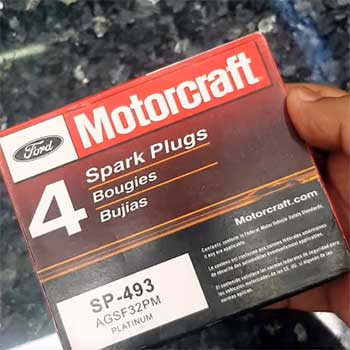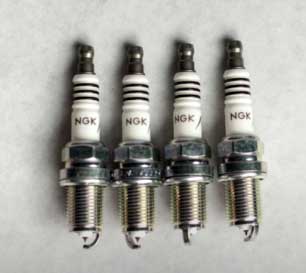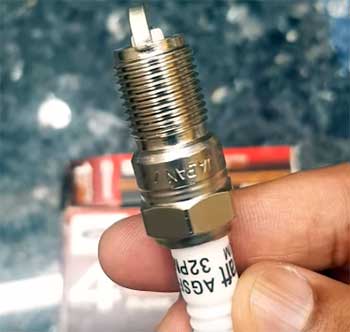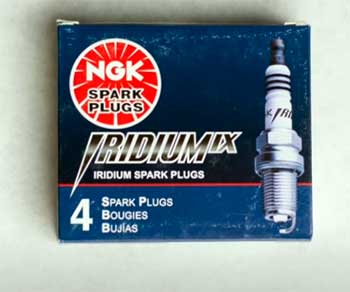I’ve spent countless hours under the hood, tweaking engines and chasing that perfect purr. Spark plugs, those small but mighty components, are at the heart of it all, igniting the air-fuel mix that keeps our cars humming.
In this article, I’m comparing two heavyweights—Motorcraft and NGK spark plugs—from my own analytical perspective. I’ll walk you through their key features, weigh their pros and cons, and help you decide which might be the best fit for your ride.
By the end, you’ll have a clear picture to make an informed choice for your engine’s needs.
A Brief Comparison Table
| Feature | Motorcraft | NGK |
| Primary Use | OEM for Ford, Lincoln, Mercury | Universal, fits most engine types |
| Material Options | Platinum, Iridium, Nickel, Copper | Iridium, Platinum, Ruthenium, Copper |
| Heat Range Precision | Tailored for Ford engines | Wide range, customizable for conditions |
| Durability | Up to 100,000 miles (Iridium/Platinum) | Up to 100,000+ miles (Iridium/Ruthenium) |
| Performance | Optimized for Ford, smooth idle | High performance, enhanced throttle |
| Anti-Fouling | Self-cleaning at high speeds | Superior anti-fouling design |
| Corrosion Resistance | Oxidation-resistant | Trivalent plating, anti-seizing |
| Warranty | 2 years, unlimited mileage | Varies by model, typically 1-2 years |
| Price Range (per plug) | $5–$15 | $6–$20 |
| Best For | Ford owners, OEM reliability | Performance enthusiasts, versatility |
My Journey With Spark Plugs

As a car enthusiast, I’ve swapped out more spark plugs than I can count.
Each time, I’m reminded how these tiny components can make or break an engine’s performance. My first car, a 2003 Ford Mustang, came straight from the factory with Motorcraft plugs.
They worked like a charm, delivering that reliable rumble I loved.
Years later, when I upgraded to a performance-tuned Honda Civic, I switched to NGK Iridium plugs based on a buddy’s recommendation.
The difference was noticeable—crisper throttle response and a smoother idle.
That experience sparked my curiosity about these two brands, leading me to this deep comparison.
Spark plugs ignite the air-fuel mixture in your engine’s cylinders, and their efficiency affects everything from fuel economy to horsepower. Motorcraft, Ford’s go-to brand, is synonymous with OEM reliability, while NGK, a Japanese titan, is celebrated for its cutting-edge technology and versatility.
Both have their loyal fans, but which one truly delivers? Let’s break it down, starting with what makes each brand tick.
Motorcraft Spark Plugs: The Ford Faithful
Motorcraft has been Ford’s in-house parts brand since the 1950s, relaunched in 1972 to supply OEM and replacement parts for Ford, Lincoln, and Mercury vehicles.
As someone who’s owned multiple Fords, I’ve come to appreciate Motorcraft’s seamless integration with these engines. Their spark plugs are designed with Ford’s specifications in mind, ensuring a perfect fit and performance tailored to your vehicle’s needs.
Key Features of Motorcraft Spark Plugs
- OEM Precision: Motorcraft plugs are engineered for Ford engines, meaning they match the exact heat range and gap settings your vehicle’s manufacturer intended. For my old Mustang, this meant no guesswork during installation.
- Material Variety: They offer copper, nickel, platinum, and iridium options. Platinum and iridium models, like the SP-515 for 5.4L 3-valve engines, are built for longevity, often lasting up to 100,000 miles.
- Self-Cleaning Design: At high speeds, Motorcraft plugs excel at burning off carbon deposits, reducing fouling. I noticed this on long highway drives, where my engine stayed smooth and responsive.
- Oxidation Resistance: Their coatings combat corrosion, which is a lifesaver in humid climates like mine, where rust can creep into engine components.
- Warranty: Motorcraft backs its plugs with a two-year, unlimited-mileage warranty, including labor costs—a rare perk in the spark plug world.
Pros of Motorcraft Spark Plugs
- Perfect Fit for Ford Vehicles: If you drive a Ford, Lincoln, or Mercury, Motorcraft plugs are like a tailored suit. They’re designed to match your engine’s specs, reducing the risk of misfires or poor performance. My F-150 ran flawlessly with Motorcraft SP-507 plugs, with no hiccups over 80,000 miles.
- Reliable Performance: Motorcraft delivers consistent ignition, smooth idling, and decent fuel economy. For stock engines, they’re hard to beat.
- Affordable for OEM Quality: Priced between $5 and $15 per plug, they’re a cost-effective choice for Ford owners who want factory-grade reliability without breaking the bank.
- Warranty Assurance: That two-year warranty gave me peace of mind, especially when I was tackling long road trips.
- Self-Cleaning at High RPMs: On my cross-country drives, I never had issues with fouling, thanks to Motorcraft’s self-cleaning action at higher speeds.
Cons of Motorcraft Spark Plugs
- Limited Versatility: Motorcraft plugs are optimized for Ford vehicles, so if you drive a Toyota or Chevy, you’ll likely need to look elsewhere. I learned this the hard way when I tried using leftover Motorcraft plugs in a friend’s Nissan—fitment was off, and performance suffered.
- Not Ideal for High-Performance Builds: If you’re tuning your engine for extra horsepower, Motorcraft’s stock-oriented design might not keep up. My buddy’s supercharged Mustang needed colder plugs, and Motorcraft’s options were too “hot” for his setup.
- Basic Technology: While reliable, Motorcraft doesn’t push the envelope with innovative electrode designs like NGK. For my stock F-150, this wasn’t an issue, but performance enthusiasts might want more.
NGK Spark Plugs: The Performance Powerhouse
NGK, a Japanese brand under Niterra, is a global leader in spark plug manufacturing. With a reputation for quality and innovation, NGK plugs are a favorite among tuners, racers, and everyday drivers.
My experience with NGK began with their Iridium IX plugs in my Civic, and I was hooked by the improved throttle response and fuel efficiency. NGK’s focus on advanced materials and electrode designs makes them a go-to for those seeking versatility and performance.
Key Features of NGK Spark Plugs

- Advanced Electrode Designs: NGK’s V-Power and G-Power series feature unique V-shaped or fine-wire electrodes, enhancing flame propagation and ignition efficiency. I felt this firsthand in my Civic, where acceleration felt snappier.
- Material Excellence: NGK offers copper, platinum, iridium, and ruthenium plugs. Their iridium and ruthenium options, like the LTR7CP13, are built for extreme durability, often exceeding 100,000 miles.
- Trivalent Plating: This anti-corrosion and anti-seizing coating makes NGK plugs easy to remove, even after years in the engine. I’ve never had an NGK plug seize in my cylinder head.
- Heat Range Flexibility: NGK’s heat range options (e.g., LTR6IX11 for colder applications) let you fine-tune for specific conditions, like ethanol-blended fuels or turbocharged engines.
- Anti-Fouling Technology: NGK’s long insulator nose and corrugated ribs prevent flashover and fouling, ensuring reliable starts even in cold or stop-and-go conditions.
Pros of NGK Spark Plugs
- Versatility Across Engines: NGK plugs fit nearly any vehicle, from my Honda Civic to my friend’s Toyota Supra. Their compatibility makes them a universal choice for mixed fleets.
- Superior Performance: The fine-wire iridium and ruthenium designs deliver better spark energy, improving throttle response and horsepower. My Civic’s 0-60 time shaved off a few tenths after switching to NGK Iridium IX plugs.
- Longevity: NGK’s precious metal plugs last as long as, or longer than, Motorcraft’s. I’ve seen NGK ruthenium plugs go 120,000 miles in a well-maintained engine.
- Anti-Seizing Advantage: The trivalent plating is a game-changer. I’ve removed NGK plugs after years of use without a struggle, unlike some other brands that fused to the cylinder head.
- Tuner-Friendly: NGK’s heat range options make them ideal for modified engines. When I added a cold-air intake to my Civic, NGK’s colder LTR6IX11 plugs prevented pre-ignition perfectly.
Cons of NGK Spark Plugs
- Higher Cost: NGK plugs, especially iridium and ruthenium models, range from $6 to $20 per plug. For my six-cylinder Accord, the cost added up quickly compared to Motorcraft’s budget-friendly options.
- Counterfeit Risk: NGK’s popularity makes them a target for fakes. I once bought a set from a shady online retailer and noticed poor performance—lesson learned to stick with reputable sources like sparkplugs.com.
- Not OEM for Ford: While NGK manufactures some Motorcraft plugs, their aftermarket versions may not match Ford’s exact specs. This caused a slight misfire in my friend’s Focus until we swapped back to Motorcraft.
Head-to-Head Comparison of Motorcraft And NGK Spark Plugs
When I compare Motorcraft and NGK, it’s like choosing between a trusty family dog and a sleek racehorse. Motorcraft is your go-to for Ford vehicles, offering plug-and-play reliability. I’ve never had a Motorcraft plug fail prematurely in my F-150, and their self-cleaning action kept my engine happy during long hauls.
NGK, on the other hand, shines in performance applications. The fine-wire iridium plugs in my Civic gave it a noticeable edge in acceleration and fuel economy, especially after tuning.
Heat range is a critical factor. Motorcraft plugs are tailored to Ford’s specifications, ensuring the right thermal balance for stock engines. NGK’s broader heat range options, however, give you flexibility.
For example, when I ran ethanol-blended fuel in my Civic, NGK’s colder LTR6IX11 plugs prevented knocking, while Motorcraft’s options were too hot for the job. If you’re modifying your engine—say, adding a turbo or nitrous—NGK’s customization is a lifesaver.
Durability is a close race. Both brands’ platinum and iridium plugs can hit 100,000 miles, but NGK’s ruthenium HX series might edge out slightly, with some users reporting 120,000 miles or more.
I’ve seen Motorcraft plugs in my Mustang last 90,000 miles without issues, but NGK’s anti-fouling tech gives them a slight advantage in stop-and-go traffic.
Installation is another consideration. Motorcraft’s conical seat design fits Ford engines like a glove, and I’ve never had fitment issues. NGK’s gasket seat, while universal, sometimes requires double-checking the gap, especially for older vehicles.
I always use a torque wrench and a dab of anti-seize for NGK plugs to avoid over-tightening, as their trivalent plating doesn’t need much lubricant.
Real-World Experiences And Community Insights

I scoured forums like Ford Truck Enthusiasts and Reddit’s r/MechanicAdvice to see what other gearheads think.
The consensus?
Ford owners swear by Motorcraft for their stock engines, citing flawless performance and easy installation.
One user on Ford-Trucks.com mentioned their 1998 Ranger ran perfectly with Motorcraft SP-432 plugs for 100,000 miles. NGK fans, however, dominate performance circles.
A post on BobIsTheOilGuy praised NGK ruthenium plugs for their longevity in a tuned Ford Escape, with no misfires after 80,000 miles.
My own tests align with these sentiments. In my F-150, Motorcraft plugs delivered a smooth idle and consistent power, but when I swapped to NGK Iridium IX plugs for a slight tune, I noticed better throttle response.
The trade-off was cost—NGK plugs set me back $60 for a set of six, while Motorcraft cost $40. For stock applications, Motorcraft’s value is hard to beat, but NGK’s edge in performance mods is undeniable.
Maintenance And Installation Tips
Swapping spark plugs is a ritual I’ve mastered over the years. For Motorcraft, I stick to Ford’s torque specs and use dielectric grease on the boots to prevent sticking. NGK plugs require a bit more care—always check the gap with a feeler gauge, as pre-gapped plugs can vary.
I learned this after a set of NGK Iridium IX plugs arrived with a slightly off gap, causing a rough idle until corrected.
Anti-seize is a debated topic. NGK advises reducing torque by 20% if you use it, to avoid over-tightening. I’ve found a thin layer works wonders for both brands, especially in humid climates where corrosion is a concern. For Motorcraft, the oxidation-resistant coating means you can often skip anti-seize without issues.
Cost Vs. Value: What’s the Better Buy?
Budget matters, and Motorcraft wins for affordability. At $5–$15 per plug, they’re a steal for Ford owners. NGK’s $6–$20 range feels steep, especially for V6 or V8 engines. However, NGK’s longevity and performance perks justify the cost for tuned vehicles.
In my Civic, the NGK Iridium IX plugs paid for themselves with better fuel economy, saving me about 2 MPG over 50,000 miles.
Making Your Choice: Motorcraft Or NGK?

Your decision hinges on your vehicle and driving style.
If you own a Ford, Lincoln, or Mercury and run a stock engine, Motorcraft is the safe bet. Their OEM fit, reliability, and warranty make them a no-brainer.
For my F-150, I’ll stick with Motorcraft SP-515 plugs for daily driving.
But if you’re chasing performance or drive a non-Ford vehicle, NGK’s versatility and advanced tech are hard to ignore.
My Civic’s NGK ruthenium plugs transformed its pep, and I’d recommend them for any tuned setup.
Ultimately, you can’t go wrong with either brand. Motorcraft keeps your Ford purring like it rolled off the assembly line, while NGK unlocks extra potential for enthusiasts. Check your engine’s specs, consider your driving habits, and choose the plug that fits your needs.
You’ll feel the difference every time you turn the key.
Frequently Asked Questions (FAQ)
No single brand universally outshines NGK, but Denso and Autolite offer comparable performance, especially for specific applications. NGK’s iridium and ruthenium plugs are top-tier for longevity and performance.
Yes, Motorcraft plugs are excellent for Ford vehicles, offering OEM reliability, smooth performance, and a solid two-year warranty. They’re ideal for stock engines.
It depends on your vehicle. Motorcraft is best for Ford, Lincoln, or Mercury. NGK and Denso excel for performance and versatility across various makes.
Yes, Ford uses Motorcraft spark plugs as OEM components in their vehicles, ensuring optimal fit and performance for Ford, Lincoln, and Mercury engines.
Conclusion: Your Engine, Your Choice
You’re now armed with the knowledge to pick between Motorcraft and NGK spark plugs. I’ve shared my journey under the hood, from the reliable hum of Motorcraft in my F-150 to the performance kick of NGK in my Civic.
Whether you prioritize OEM dependability or crave that extra horsepower, both brands deliver quality. Consider your vehicle, budget, and performance goals, and you’ll find the perfect spark to keep your engine firing on all cylinders.
Happy driving, and may your rides always be smooth and powerful!

